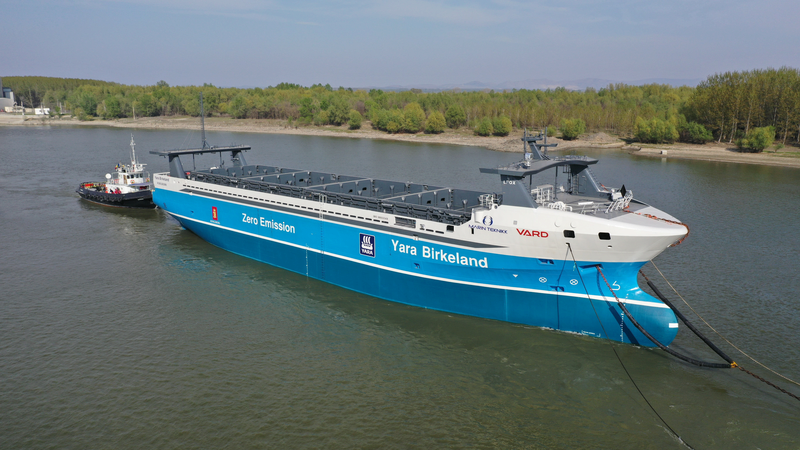Yara Birkeland, a futuristic ship designed as the world’s first all-electric and autonomous cargo vessel, was shown to people in Norway.
An electric ship uses electricity (that can be generated from the sun, water, or other green sources) instead of traditional fuels like coal, diesel, etc. We already have seen electric bikes and cars around us. Perhaps, in the future, electric ships will exist too, making it easy to travel without using diesel.
It is a planned substitute (substitute: something that replaces something else. For example, Stevia is a substitute for sugar) for 40000 diesel-powered truck journeys every year.
As a part of its unveiling, the ship made a short, crewed trip from the town of Horten to Oslo – around 70 km (43 miles) away.
The ship is a joint venture between chemical production firm Yara and maritime technology company Kongsberg and will carry chemicals and fertilizer from Yara’s production plant in Prosgrunn to nearby towns, thereby making significant reductions in its carbon emissions.
The 80-meter-long (262-ft) vessel is powered by a 6.8-mWh battery pack and can carry up to 3,200 tons at a maximum speed of 15 knots (28 km/h, 17 mph).
In addition to building the ship, Yara is tapping into its own stocks of ammonia used in its fertilizer production to develop a zero-carbon fuel source for use aboard the Yara Birkeland.
Technology company Kongsberg is responsible for integrating the sensors and other systems for autonomous navigation, with the pathway to full autonomy to also include a phase of remote operation.
The ship will load and offload its cargo, recharge its batteries, and also navigate without human involvement. Sensors will be able to quickly detect and understand objects like kayaks in the water so the ship can decide what action to take to avoid hitting anything. Subsequent work will now begin on certifying it as an autonomous container vessel. It can then start commercial operation (working for the company).

